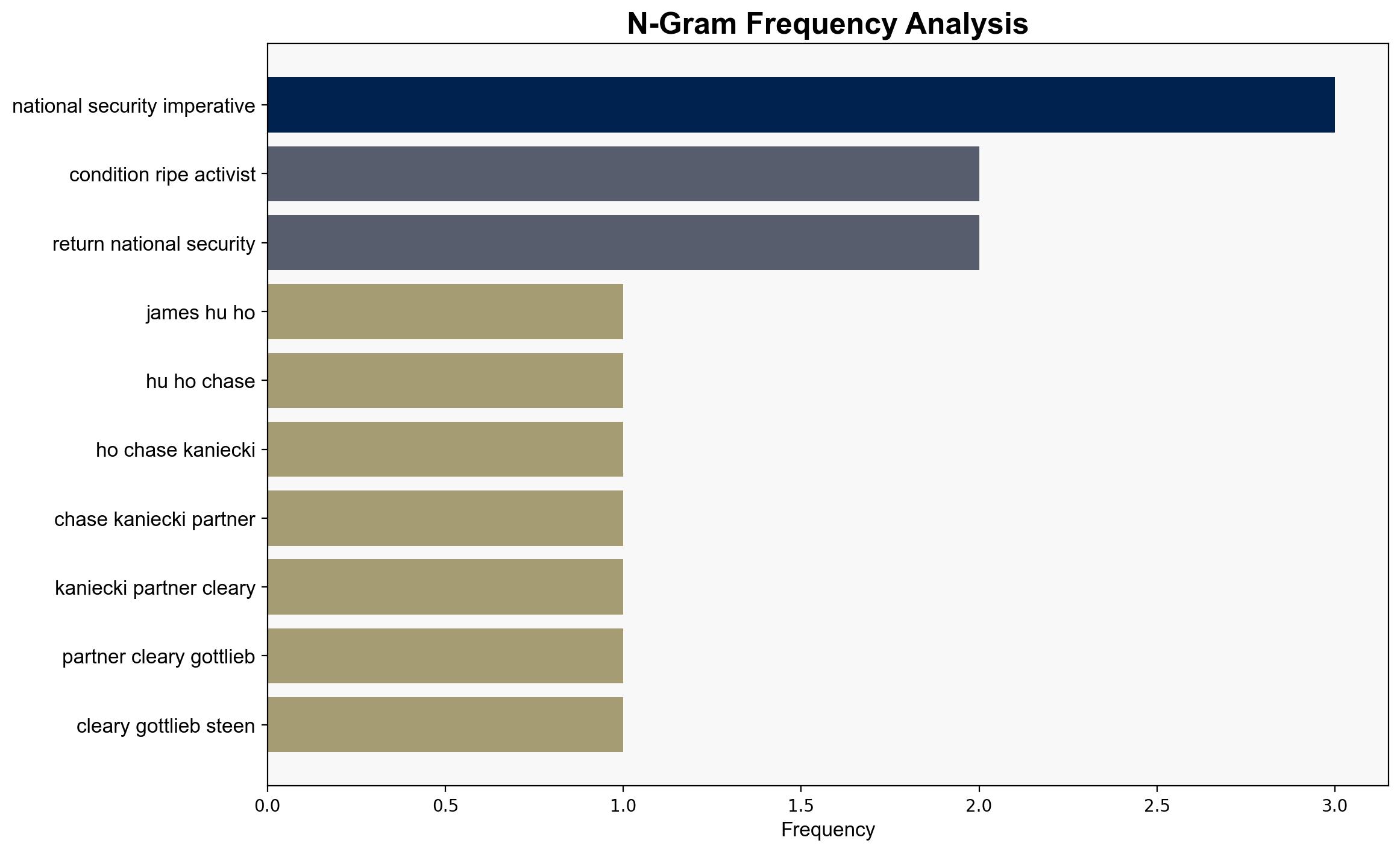National Security The Next Frontier of Corporate Activism – Harvard School of Engineering and Applied Sciences
Published on: 2025-10-09
Intelligence Report: National Security The Next Frontier of Corporate Activism – Harvard School of Engineering and Applied Sciences
1. BLUF (Bottom Line Up Front)
The integration of national security concerns into corporate activism is becoming increasingly significant, driven by geopolitical tensions and government policies. The hypothesis that corporate activism will increasingly align with national security imperatives is better supported. Confidence level: Moderate. Recommended action: Companies should proactively align their strategies with national security priorities to mitigate risks and capitalize on potential government incentives.
2. Competing Hypotheses
Hypothesis 1: Corporate activism will increasingly incorporate national security themes, driven by geopolitical tensions and government policies, leading to a new paradigm where national security considerations significantly influence corporate strategies and shareholder returns.
Hypothesis 2: The integration of national security into corporate activism is a temporary trend, primarily rhetoric-driven, with limited long-term impact on corporate strategies and shareholder returns.
Using ACH 2.0, Hypothesis 1 is better supported due to evidence of government actions (e.g., Department of Defense’s investment in MP Materials) and market reactions to national security-aligned corporate decisions (e.g., Intel’s stock surge).
3. Key Assumptions and Red Flags
Assumptions:
– Governments will continue to prioritize national security in economic policies.
– Companies can effectively align with national security imperatives without compromising other strategic objectives.
Red Flags:
– Potential overreliance on government incentives could lead to strategic vulnerabilities.
– Rhetoric-driven campaigns may mask genuine business interests, leading to misalignment with shareholder expectations.
4. Implications and Strategic Risks
The alignment of corporate strategies with national security imperatives could lead to increased government intervention in private sectors, potentially disrupting traditional business models. This shift may also heighten geopolitical tensions as countries vie for strategic economic advantages. Companies failing to adapt may face financial penalties or loss of market position.
5. Recommendations and Outlook
- Companies should conduct thorough risk assessments to understand the implications of aligning with national security priorities.
- Develop flexible strategies that can adapt to changing geopolitical landscapes.
- Scenario-based projections:
- Best Case: Companies successfully integrate national security considerations, gaining government support and enhancing shareholder value.
- Worst Case: Misalignment with national security priorities leads to regulatory penalties and loss of market access.
- Most Likely: A mixed landscape where some companies benefit from alignment, while others struggle with the complexities of geopolitical considerations.
6. Key Individuals and Entities
– James Hu
– Chase Kaniecki
– MP Materials
– Intel
– Ancora
7. Thematic Tags
national security threats, corporate strategy, geopolitical tensions, shareholder activism





